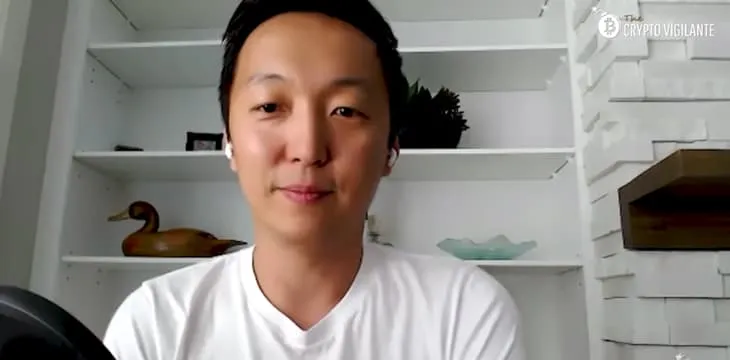|
Getting your Trinity Audio player ready...
|
Jack Liu, the creator of FloatSV, RelayX, and CambrianSV, recently guested on The Crypto Vigilante, a show hosted by Rafael LaVerde that provides unadulterated insight into digital currency networks.
The episode begins with Liu talking about how he got into Bitcoin, how RelayX works, and his previous experiences working at digital currency exchanges. Then, the two take a deep dive into the Bitcoin network and economy as well as the token and NFT renaissance we are seeing take place on BSV.
“I think that every single item that’s a good or service will be tokenized in the future, and I think it’s as significant a breakthrough for commerce as much as the internet if not more,” said Liu.
“People have falsely looked at the other version of Bitcoin as just some brick that you buy, and they call it digital gold and it goes up a lot. But no one is engaging in commerce, in fact, the entire culture is “let’s not engage in commerce, let’s hodl it forever.”
“But you are not creating any economic activity. What you are doing is siphoning the output of actual economic activity generated in China, in the United States, in Europe, and asking those people to move that money that they’ve earned off-chain, and buy this thing called BTC.”
“What BSV, the real Bitcoin, is going to do—is also go up a lot in price as you see today, new all-time highs—but it is going to do that by becoming a new commercial layer for the world, a new form of commerce and economy as big as the internet.”
Liu also talks about how internet commerce disrupted brick-and-mortar experiences and then explains how BSV commerce via tokens is much more efficient than internet commerce and ripe to disrupt it. Liu also discusses how tokens create a more efficient market and secondary market, as well as how they allow for unprecedented goods and services to be sold.
Liu and LaVerde briefly explore why BSV is the only version of Bitcoin that the world that Liu envisions is possible on, before going on to talk about the obstacles that BSV is facing at the moment.
“What would be the challenge on BSV moving forward,” asked Laverde.
To which Liu answered, “There needs to be more interoperability between products in BSV. It’s nice that our products are all on the same chain but if our products don’t work with each other, wallets don’t send to each other, different NFTs are on different token protocols, I think that’s something that’s going to need to be addressed.”
“I think [in] the first two years of BSV it was about, ‘We think these things are possible, can we make them possible?’ In the last 6 months, we have seen that, ok yeah, we can do tokens, ok yeah, we can do NFTs, we can do data storage we can do all of these things, and everyone has gone their own way to achieve those things.”
“The next few years [will be about] not worrying about what’s possible, but making the economy work efficiently between services, expanding the services, and kind of truly stepping into the next frontier and growing those services. I think that’s the challenge for the next few years, and that takes a different kind of skillset, different kind of mindset, you are not in a ‘prove that it can work’ mindset, you are in a deliver quality products, quality customer service, basically a whole set of new kind of challenges, I think that’s the next phase.”
Liu and LaVerde talk about a variety of topics related to Bitcoin SV and its economy, what it aims to do, the obstacles it faces, and what the point of failure in BSV would be if there does turn out to be one.
You can watch the full episode of The Crypto Vigilante that features Jack Liu, “Is Silicon Valley Scared of BSV? Interview with Jack Liu, CEO of RelayX,” on The Crypto Vigilante YouTube Channel.

 07-12-2025
07-12-2025 





